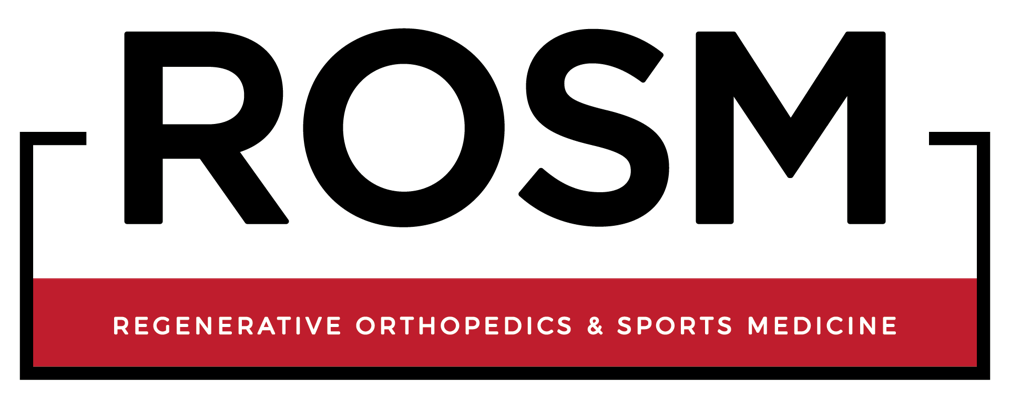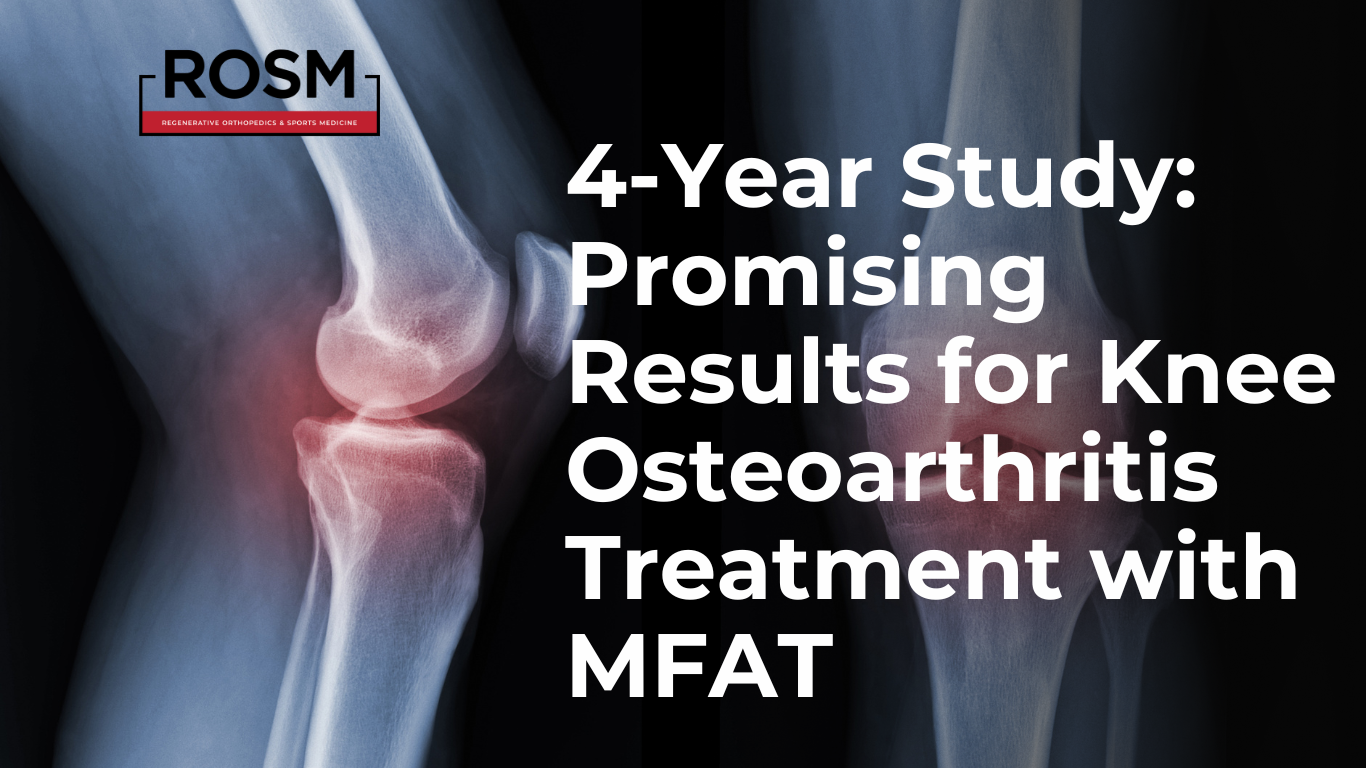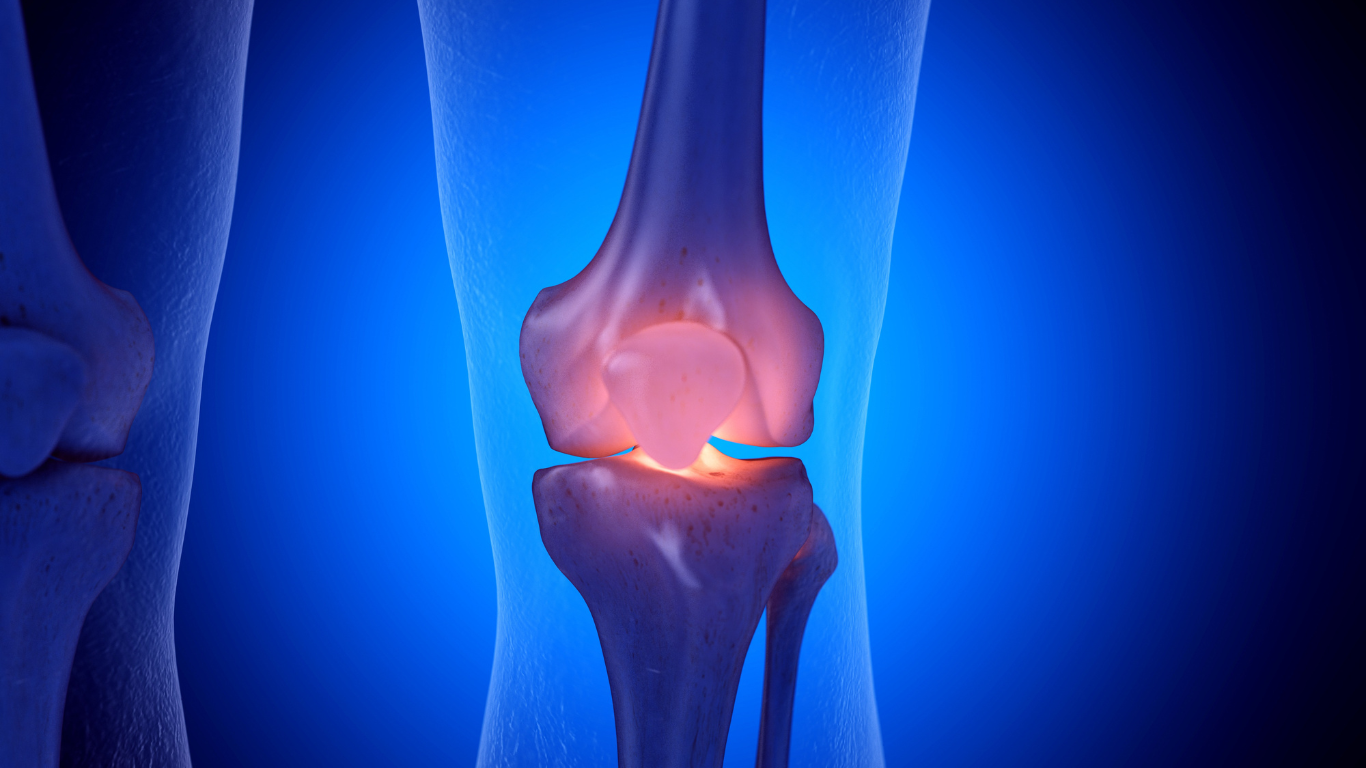By Dr. John L. Ferrell III, M.D.(*)
If you’re one of the millions living with knee osteoarthritis (OA), you know how frustrating it can be to find a treatment that provides lasting relief. Recent research suggests microfragmented autologous fat tissue (MFAT) injections may be a significant step forward. A study published in the Archives of Orthopaedic and Trauma Surgery reports that 68% of patients experienced meaningful improvement four years after treatment, offering a promising non-surgical option for early to moderate knee OA.
What is Microfragmented Fat Tissue (MFAT) Therapy?
MFAT therapy uses a patient’s own fat, collected through a minimally invasive procedure, to provide stem cell–rich material directly into the knee joint. These cells have the potential to:
-
Reduce inflammation
-
Support tissue healing
-
Alleviate pain
-
Improve joint function
Unlike traditional treatments such as corticosteroids or NSAIDs, MFAT offers a biological approach that targets the health of the joint itself rather than just masking symptoms.
Key Results: How Effective is MFAT for Knee OA?
The study followed 46 patients over four years and showed encouraging outcomes:
-
Pain Reduction: Visual Analogue Scale (VAS) scores dropped from 6.3 to 3.5, reflecting a significant decrease in discomfort.
-
Improved Functionality: WOMAC scores improved from 66.5 to 82.8, indicating better movement and reduced symptoms.
-
Safety: No major complications were reported during the follow-up period, demonstrating that MFAT is a safe, minimally invasive option.
Notably, the greatest benefits were observed in patients with early-stage knee OA, offering the potential to delay—or in some cases, avoid—the need for total knee replacement.
Who Can Benefit from MFAT Treatment?
MFAT therapy may be a smart option for patients who:
-
Have mild to moderate osteoarthritis
-
Have tried conservative therapies like physical therapy or PRP injections without sufficient relief
-
Are seeking to delay surgical intervention
The study also noted that patients with existing synovitis (inflammation of the joint lining) may require additional treatment, emphasizing the importance of managing inflammation to achieve the best outcomes.
A Glimpse into the Future of Osteoarthritis Management
As osteoarthritis becomes increasingly common due to aging and lifestyle factors, treatments like MFAT are bridging the gap between conservative care and surgery. While total knee replacement may eventually be necessary for some patients, MFAT provides a long-lasting, minimally invasive alternative that can significantly improve quality of life.
Interested in Exploring MFAT Therapy?
If you’re considering non-surgical options for knee OA, MFAT may be a safe and effective choice. Our team of regenerative medicine specialists can help determine if this treatment is right for you.
Contact us today to schedule a consultation and take the first step toward reducing pain and improving your mobility.



